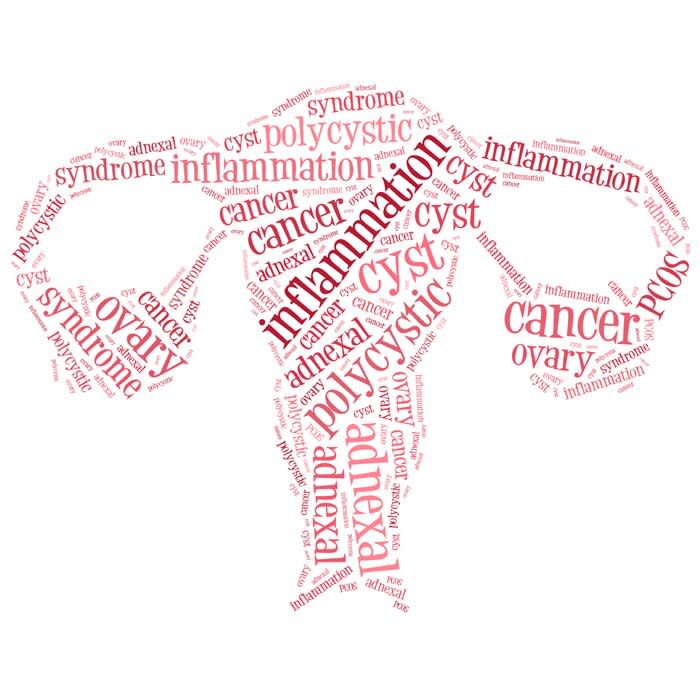4 Things You Didn't Know About Ovarian Cancer

iStock
We're still in denial that summer is ending, but calendars confirm: September's here. And with it, fall fashion, pumpkin spice lattes, and a reminder to check yourself for ovarian cancer. You may not think of the baby-making facilitators too much (or at all) outside of pregnancy, but it's something we all should be on top of. Here, we turn to Lindsay Avner, founder of Bright Pink, an organization directed at raising awareness on breast and ovarian cancers among young women, to hear why it's important to keep the cancer on our radar.
It's Known as the Silent Killer
Prolonged bloating, pelvic abdominal pain, and feeling the need to urinate frequently are all things that the average women might feel on the average day. They're also symptoms of ovarian cancer. Since symptoms are so vague, the cancer can be tough to catch. It's easy to chalk those symptoms up to hormonal changes, a UTI, or just a big Chinese dinner, Avner says. "That's why it's so important for women to know the symptoms and be empowered to go to their doctor if the symptoms persist or worsen," Avner says.
RELATED: 13 Questions You're Too Embarrassed to Ask Your Ob-Gyn
It's the Deadliest Gynecological Disease
Two-thirds of women who are diagnosed with ovarian cancer will die as a result, Avner says. That's why you need to be proactive. To ensure your symptoms aren't overlooked, ask your doctor questions like, 'Could it be my ovaries?'
A Pap Smear Doesn't Check for It
Many of us think that after heading to the lady doctor, we're covered. But in reality, your ob-gyn is testing for cervical cancer, a far less pervasive and far less deadly cancer, Avner says. This year, 12,360 women will be diagnosed with cervical cancer versus 21,980 new diagnoses of ovarian cancer, according to the American Cancer Society.
Oral Contraceptives Reduce Your Risk
Popping the Pill every day has its benefits: hormone control, cramp killer, unplanned pregnancy prevention, and protection from cancer. "Five years of oral contraceptives for a woman in her 20s or 30s can have the power to reduce the risk for ovarian cancer by 50 percent," Avner says. These five years can be non-consecutive, so if you go on the pill for a few years in your early 20s and go off again until you're 30, you'll still reap the benefits. One study found that the risk for ovarian cancer decreases by 36 percent for every 10 years taking oral contraceptives. Another found that the protection continues long after you stop.

